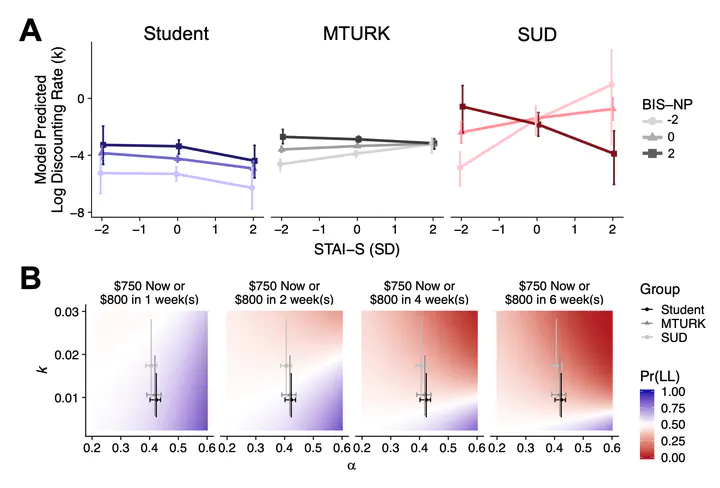Using Decision Theory to Model Anxiety-Impulsivity Interactions and Impulsive Behavior

Abstract
Trait impulsivity—defined by strong preference for immediate over delayed rewards and difficulties inhibiting prepotent behaviors—is observed in all externalizing disorders, including substance use disorders. Many laboratory tasks have been developed to identify decision-making mechanisms and correlates of impulsive behavior, but convergence between task measures and self-reports of impulsivity are consistently low. Longstanding theories of personality and decision-making predict that neurally mediated individual differences in sensitivity to reward cues versus punishment cues (frustrative non-reward) interact to affect behavioral tendencies. Such interactions obscure 1:1 correspondences between single personality traits and task performance. We use hierarchical Bayesian analysis in three samples with differing levels of substance use (N=967) to identify interactive dependencies between trait impulsivity and state anxiety on impulsive decision-making. Our findings reveal how anxiety moderates impulsive decision-making and demonstrate benefits of hierarchical Bayesian analysis over traditional approaches for testing theories of psychopathology spanning levels of analysis.